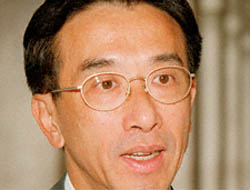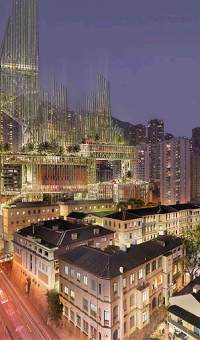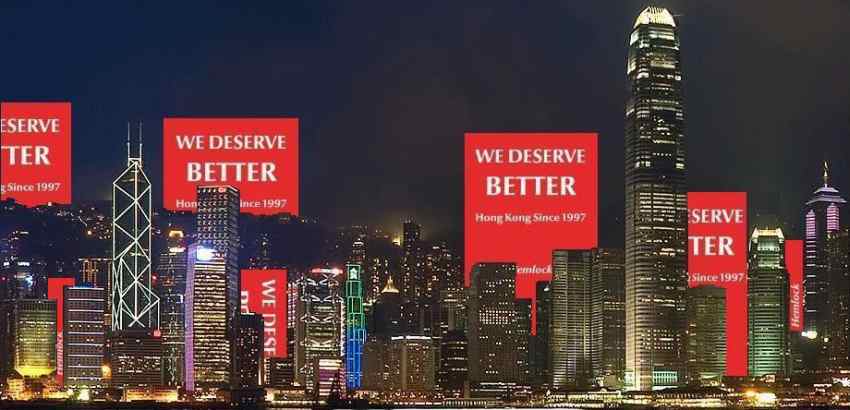

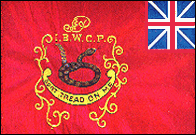
The highlight of the weekend was my annual state visit to Lamma. Most people associate the island with snakes, killer centipedes, swamps, seafood restaurants of indifferent quality and faded Westerners staring mournfully out to sea in search of the San Miguel barge making its weekly delivery. This image is outdated. While the rest of Hong Kong has fallen into despondency and stagnation since 1997, Lamma is on a roll. Its high-tech and creative industries, wide open spaces and low cost of living have made the place a magnet for energetic and entrepreneurial talent from around the world. Even the derelict, red-faced gwailos in the Island Bar leering over their beers at arriving visitors have been shipped in from outside and put there just because tourists expect to see them. Time for the planners to increase the plot ratios and building height limits. We should all move there.

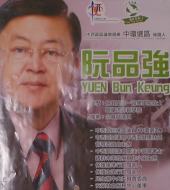
Regina Ip gets face time and photo ops with Education Secretary Michael Suen and Constitutional Affairs Secretary Stephen Lam. This translates into publicity and upsets members of the pro-democracy camp who see it as canvassing by Government officials in favour of one of the two candidates in the Election of the Century next December. Does being seen hobnobbing with these two men increase your popularity? I might try it myself. She also appears in the company of much-missed former Secretary for Justice Elsie Leung, now a stalwart of the highly popular National People’s Congress. Curious as to where Regina draws the line on who to mix with, I can’t resist doing some research to see whether, say, any giant apes have become members of her Savantas Policy Institute. Good grief.
It is possible that Regina has no real interest in or expectation of winning the Legco seat this year, and that she is running simply to bring herself to the attention of our masters in Beijing, who will have to choose a new Chief Executive for Hong Kong by 2012. In their eyes, losing a straight one-on-one democratic election is probably a sign of quality. If she is serious, however, she has a dilemma. In order to satisfy Beijing that you are a fit and proper possible candidate for high office in Hong Kong, you must publicly adopt a stance on democracy that will alienate the majority of the population. In order to win a plain, two-horse election race, you need over 50 percent of the vote.
It must be frustrating, because her rival Anson Chan is little more convincing than Regina on the subject of political reform. After decades of haughtily ‘serving’ the excluded millions, Dame Conscience’s token appearances at pro-reform marches and bland blather about universal suffrage don’t wash. Regina has at least admitted to past blunders and a re-think, and she can claim to have pondered the subject to the extent that she has written a master’s dissertation full of observations like “…democratization in Hong Kong would benefit from the nurturing of a political culture which encourages greater tolerance, inclusion, mutual trust and accommodation.”
So the competition for the title of Most Believable Democrat is hardly fierce (Least Believable would be a real fight). In theory, if Regina turned up the conviction a bit she could win. A strategist would recommend that she go on the attack – tackle Anson on her own, tenuously-held democratic territory and question her right to the territory. “I am more pro-democracy than you are, you blue-rinsed, pearl-clad old phony!” Unlike Anson, the Iron Butterfly at least has feistiness to compensate for underlying lack of sincerity.
But in order to make it work, she would have to put at least a thin slice of space between her rhetoric and the traditional pro-Beijing crowd’s language on reform, which does no more than camouflage their contentment with the status quo. And this is Regina’s problem. While she could justifiably claim to be as pro-democracy as Anson – it’s not saying much – she can’t prove it without deviating from the United Front-approved script. Not if she wants to be Chief Executive. So what the hell – might as well be seen with creeps like Stephen Lam. And Anson, with nothing more to offer than dimpled cheeks and a Cheshire cat grin, can relax and think – “What, me worry?”

Ideally, I would head out this morning to an abandoned farm in a remote corner of the New Territories. I would hack my way through a neglected banana plantation and dig into the ground until I have a deep hole, which I would line with lead. I would then put a mattress, a candle, a book, a bottle of liquid sustenance and a pair of earplugs into the hole, climb in, pull a heavy lid down tight, and sit in solitude for a day or two. But, stuck in Central, and in line with Government decree, there shall be no escape from the Policy Speech.
Instead, I bury myself in breakfast at the Foreign Correspondents Club with generously formed Administrative Officer Winky Ip. “I was walking past this place last week,” she tells me, “and I heard a voice shouting from inside here. About you. He was saying, ‘Hemlock! Who’s Hemlock! He’s a coward!’ He sounded like the sort of person who knows what he’s talking about.”
“Well, this is the FCC,” I remind her. “Everyone here knows what they’re talking about. You can’t become a member otherwise. But yes, apparently a noted columnist did loudly denounce me to another person as a coward for writing anonymously.” A crusty scribe of the old school did the same when I was dragged onto the radio a few months ago.
The shapely bureaucrat thinks about it for a few seconds. “Quite right too!” she declares. “I should have come in and agreed with him. In the Mainland, all people writing on bulletin boards, blogs and all that have to be identifiable, in the interests of harmony and social order.” She wags a chopstick in my direction. “It’s called responsibility.”
Finished with the subject, Winky embarks on a lengthy and moving narrative about Anson Chan’s hairstyle. But my mind dwells on this charge of cowardice. What’s wrong with prudence and a commitment to self-preservation? Anyway, a coward must fear something. What scares this diarist about revealing his identity? In civilized Hong Kong, official persecution can be ruled out. Dismissal by my employer is a theoretical possibility, but – as with the prospect of secret police henchmen – I would be flattering myself to think anyone would take any notice of a humble on-line diary and an obscure book. Anyway, financial repercussions of unemployment are not too daunting. I would like to avoid any possibility of embarrassment to past or present bosses whom I respect and who enjoy good relations with some of the dimwits featured in the diary. Again, it is probably a slim danger. But that is my official reason for the mask.
Genuine, professional journalists with real ethics would take a more principled stance and insist that I am really seeking to avoid personal and public accountability – I am afraid of criticism, correction, contradiction and challenges made to my face. No-one would relish these things, so it is a fair point. As a matter of policy, few respectable periodicals will publish unsigned articles or letters. In professional journalism, you have no credibility if you refuse to be identified. (And wouldn’t it frustrate some practitioners of that bitchy craft to find themselves in a quandary about whether to consider a piece worthy without knowing who penned it?)
But this is the Internet, where, as we all know, you can do Anything You Want. A libertarian tolerance for anonymity among amateur commentators is the norm, as the responses to an article on The Furious Rise of the Anonymous Writer by Aaron Swartz make plain. The piece also points out that the Federalist Papers – a political blog of its time – were unsigned, as are nearly all Economist stories.
One possible (and suitably craven) way of countering the charge is to change the subject and point out in a self-pitying whine how distressing it is to forego the fame, the attention, the glory and the indecent proposals from nubile admirers that would inevitably come my way if I unveiled myself. Anonymity might be gutless and cost-free, but it brings no rewards.
“These people with their by-lines and dollars-per-word owe me pity!” I blurt out to Winky, interrupting her in the midst of a heart-rending description of the tonsorial challenges faced by ageing Chinese women. Bored with our respective trains of thought, we get back to our congee. All I know is that if and when the respectable professionals at the FCC learn the diarist’s real name at some stage, they will (should they actually care) scratch their graying heads and say “Huh? Never heard of ‘im!”
Hong Kong celebrates, as dashing Chief Executive Donald Tsang presents his Policy Address to end all Policy Addresses and boost economic development. Demonstrating the lateral thinking for which the city’s bureaucracy-junta has become renowned, he approaches the challenge from a bold and radical new angle. Air pollution, as he sees it, is a major cause of economic activity and growth. The key, therefore, is to find ways to increase the amount of nitrous oxide, particulates and fumes being pumped out – massive growth in gross domestic product is sure to follow.
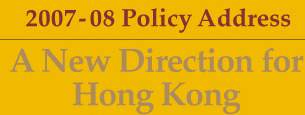
But wait! There’s more! Recognizing that air pollution isn’t everything, Sir Bow-Tie shows his caring and compassionate side by distributing some of the community’s wealth to people who don’t own construction and engineering companies. The Government will provide four free bottles of Pak Fa Yeow per year to every elderly resident in recognition of their contribution to the development of Hong Kong. It will semi-nationalize the banks, so it can contribute to their development in making Hong Kong into a hub for Islamic Renminbi sub-prime debt derivatives. And it will attract more foreign and highly cosmopolitan students to attend our world-class universities by offering them work permits, free cars, unlimited beer in dorms and their weight in gold.
Otherwise, Sir Bow-Tie’s plans are a tribute to the new governing philosophy he styles ‘progressive development’. A new era of glorious Tsangist corporatism awaits us. It is an era in which the Government’s job is to drive the economy through infrastructure projects, boost wages through infrastructure projects and create jobs through infrastructure projects. Companies, meanwhile, will assume new social responsibilities rather than just focus on shareholders’ interests, and officials will make their displeasure known if businesses are not playing their part in ensuring domestic harmony. The people will be smiling and productive, and if any do not support the infrastructure projects, or do anything else to damage consensus and this new atmosphere of peace and contentment, they will be deemed to be asking for a good spanking. Welcome to the Brave New Lychee.
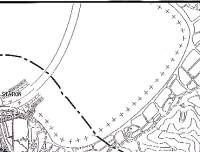
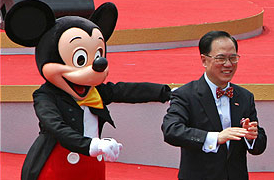
For entertainment in these glummer times, we must turn to the clique of clueless, self-seeking, panic-prone lightweights who are gradually running the city into the ground. James Tien, who as boss of the Tourism Board is responsible for giving the Big Lychee an image of warmth and friendliness, now feels it is OK to issue blatant threats against people who have the temerity to support a non-Liberal Party candidate in a District Council election. Sadly, MTR chief Sir CK Chow is bending to the slimy idiot savant’s bullying. If Fei-Fei makes a recovery, I would pay good money to see her beat up James Tien. She is surprisingly lithe – once somehow pulling a small metal hoop over herself (in a bathing costume) – and she has slapped around far less scrawny, odious and generally deserving male specimens. On film, at least.
The Mid-Levels Escalator this morning is abuzz with talk about the old Central Police Station complex, which we all see crumbling away every morning. The plan to finally put the abandoned buildings to use as some sort of touristy, heritage, culture, you-know-kind-of-stuff hub is not as cretinous and awful as it could be. None of the buildings will be knocked down, and while a high-rise structure will inevitably be squeezed in (over the old Victoria Prison courtyard, it seems) it will not be full of luxury apartments and it will, debatably, have some sort of architectural merit, blocking off views of Mid-Levels tower blocks full of people whining about having their views cut off. “I was expecting they’d do something 100 percent shit,” wild American friend Odell tells me as we stroll past some tourists photographing the colonial pile. “But instead it’s only about 80 percent shit. Amazing!” I couldn’t agree more. We will write to congratulate the officials concerned.

